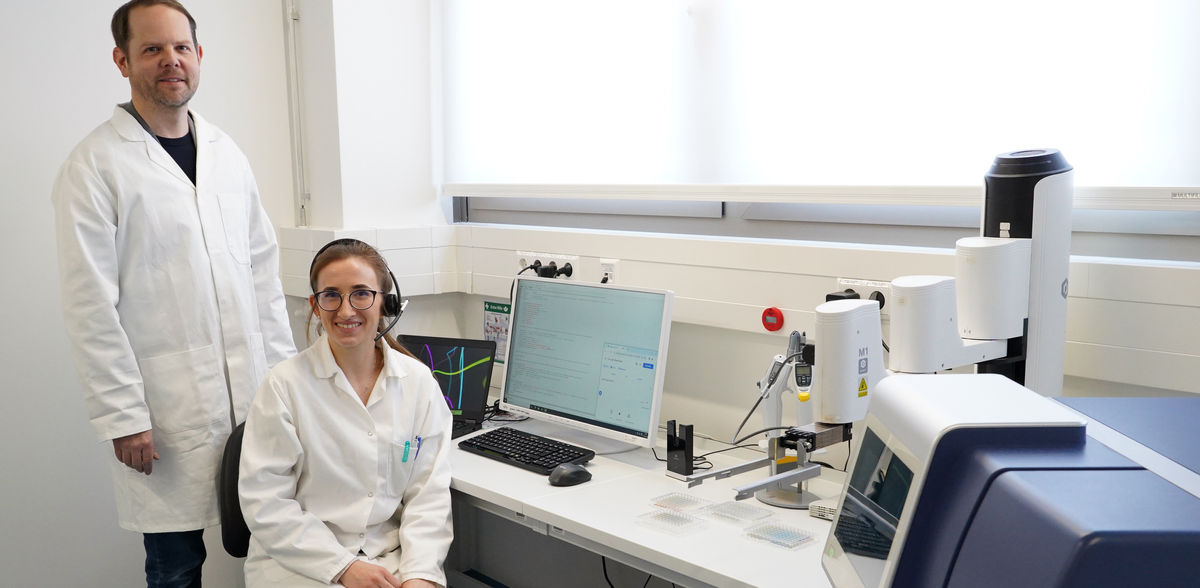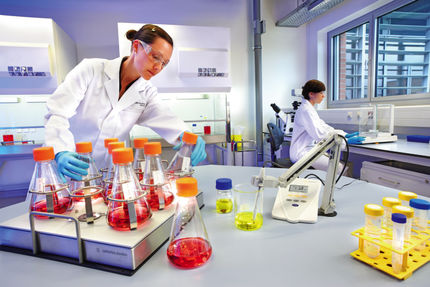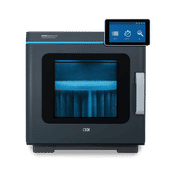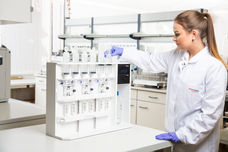Research team teaches Google's voice assistant laboratory language
Voice assistants such as Siri, Alexa and Co. have long been established in many people's everyday lives - however, they often do not understand the technical vocabulary that is spoken in laboratories. Researchers at Albstadt-Sigmaringen University of Applied Sciences have now used Google Translate speech recognition and improved it specifically for everyday work in the laboratory. The development of the "Rainbow" assistance system goes back to Maria Fernanda Avila Vazquez's Master's thesis (Biomedical Sciences course), the idea for which came from her supervising professor Dr. Thole Züchner.
"I was often annoyed when I dictated emails to my smartphone because technical terms were practically never understood properly," he says. To ensure that the speech recognition no longer turns "Stammzellen" into "Stammtisch", for example, "we trained the system with many corresponding words". Rainbow can now use voice commands to control laboratory equipment, perform scientific calculations, read out laboratory protocols, take notes and much more.
"However, the system is open and can be easily expanded by anyone to suit their individual needs and vocabulary," explains Nicole Rupp, PhD student and research assistant in the Laboratory for Bioanalytics and Laboratory Automation. It can be downloaded free of charge from the Internet.
Note: This article has been translated using a computer system without human intervention. LUMITOS offers these automatic translations to present a wider range of current news. Since this article has been translated with automatic translation, it is possible that it contains errors in vocabulary, syntax or grammar. The original article in German can be found here.
Original publication
Most read news
Original publication
Maria Fernanda Avila Vazquez, Nicole Rupp, Larissa Ballardt, Jeannine Opara, Thole Zuchner; "An expandable voice user interface as lab assistant based on an improved version of Google’s speech recognition"; Scientific Reports, Volume 13, 2023-11-9
Organizations
Other news from the department science
These products might interest you

Get the analytics and lab tech industry in your inbox
By submitting this form you agree that LUMITOS AG will send you the newsletter(s) selected above by email. Your data will not be passed on to third parties. Your data will be stored and processed in accordance with our data protection regulations. LUMITOS may contact you by email for the purpose of advertising or market and opinion surveys. You can revoke your consent at any time without giving reasons to LUMITOS AG, Ernst-Augustin-Str. 2, 12489 Berlin, Germany or by e-mail at revoke@lumitos.com with effect for the future. In addition, each email contains a link to unsubscribe from the corresponding newsletter.
Most read news
More news from our other portals
Last viewed contents

Trust in AI but not blindly - Artificial intelligence is sometimes met with scepticism but it has earned our trust
Hach Lange announces name change
90 Years of Sample Preparation with RETSCH
Agilent Technologies Completes Acquisition of BioSystem Development Business
New POC allergy test has been cleared by FDA





























































